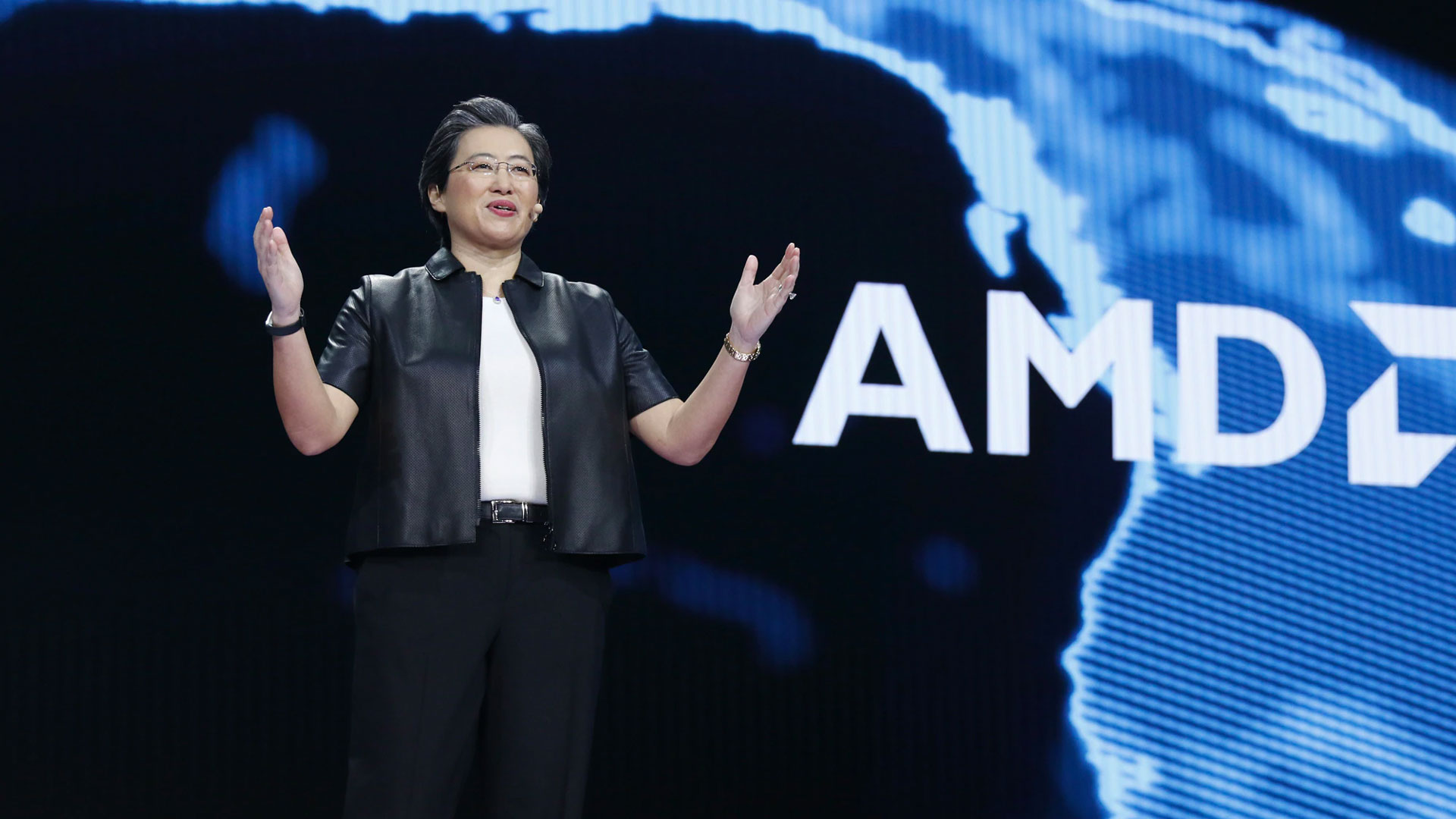After projecting losses of $1.5 billion, AMD CEO Lisa Su calls for a balance between export controls and national security
Standards is key to prosperity.

Just a day after AMD took a $800 million inventory charge because of the U.S. export controls and projections of a $1.5 billion total loss, the company's chief executive, Lisa Su, said that there must be a balance between the U.S. export controls on advanced processors and national security. China is the world's largest market and represents massive opportunities for American companies. Furthermore, if U.S. companies leave it, local entities will develop standards that compete with American ones.
"There should be a balance between export controls for national security as well as ensuring that we get the widest possible adoption of our technology," Su said in an interview with CNBC. "That is a good thing for U.S. jobs in the U.S. economy."
Last week, Jensen Huang, chief executive of Nvidia, had a similar message for U.S. lawmakers. Nvidia currently holds a dominant position in the global AI computing landscape due to its CUDA software ecosystem and widespread deployment of its hardware in the U.S., Europe, and China. However, Huang warned that U.S. export restrictions on advanced AI processors could severely weaken Nvidia's global influence and accelerate the rise of competing ecosystems, especially from China.
Companies like Huawei, Biren Technology, InnoSilicon, and Moore Threads are developing capable AI processors, and Huawei, in particular, has built a full-stack alternative to CUDA called CANN, which is designed for its Ascend processors and CloudMatrix 384 systems. While these rivals currently face usability and compatibility challenges, their position is expected to strengthen if U.S. firms are locked out of key markets.
AMD is a significantly smaller player on the AI market than Nvidia and, therefore, will not suffer from the ban on sales of American processors to China as extensively as its bigger rival. Nonetheless, AMD is considered a strong contender for becoming a big AI player, so it clearly will suffer from strict U.S. export rules. More importantly, just like Nvidia, AMD promotes American AI technology standards, so its absence from Chinese or European markets will help competing standards to establish and thrive, eventually threatening American dominance in the AI sector.
Follow Tom's Hardware on Google News to get our up-to-date news, analysis, and reviews in your feeds. Make sure to click the Follow button.
Get Tom's Hardware's best news and in-depth reviews, straight to your inbox.

Anton Shilov is a contributing writer at Tom’s Hardware. Over the past couple of decades, he has covered everything from CPUs and GPUs to supercomputers and from modern process technologies and latest fab tools to high-tech industry trends.
-
TerryLaze Reply
Instead of being able to sell their inventory right now for obscene amounts of money, they will have to wait and sell it slower to smaller markets with the danger of prices falling until they sold everything.DaRAGingLunatic said:I don’t get Nvidia and AMD. What they just destroyed the gpu’s or something?
They are still feeling the burn from the mining bubble and being stuck with huge inventories of aging cards. -
christopher.andrew.carr I can't tell if this article was paid for by Nvidia/AMD or China.Reply
Nvidia and AMD fairly clearly do not give a damn about national security. -
ihatewindowss why don't they just sell cheaper 16GB cards that people want to buy? I want a 3 fan 16GB midrange card that doesn't look like trash for 600 without getting robbed further. Is that so difficult? The 9070 sold out in 10 minutes and these corpos are death gripping their golden goose.Reply -
ekio These companies are so used to abusive greed for years with no competition and no rules, that when it may finally happen, they’re fake crying…Reply
Boohoo, I won’t be able to sell my chips 200x their production cost to desperate customers and our competitors at the other end of the world will have an opportunity of beating us because they show competitive products, it’s unfairrrrrr.
Seriously….? -
TerryLaze Reply
Well, as a company you can't just say YOLO we see if we can pay when the time comes....flowingbass said:Projected... Because they are counting their chickens before they're hatched.
They have to plan out for at least one quarter, preferably much more. -
ManDaddio Yeah, I have no care how AMD or NVIDIA feel. The tariffs are just a power move anyhow. No one will beat out America. Everyone needs us whether they like it or not.Reply